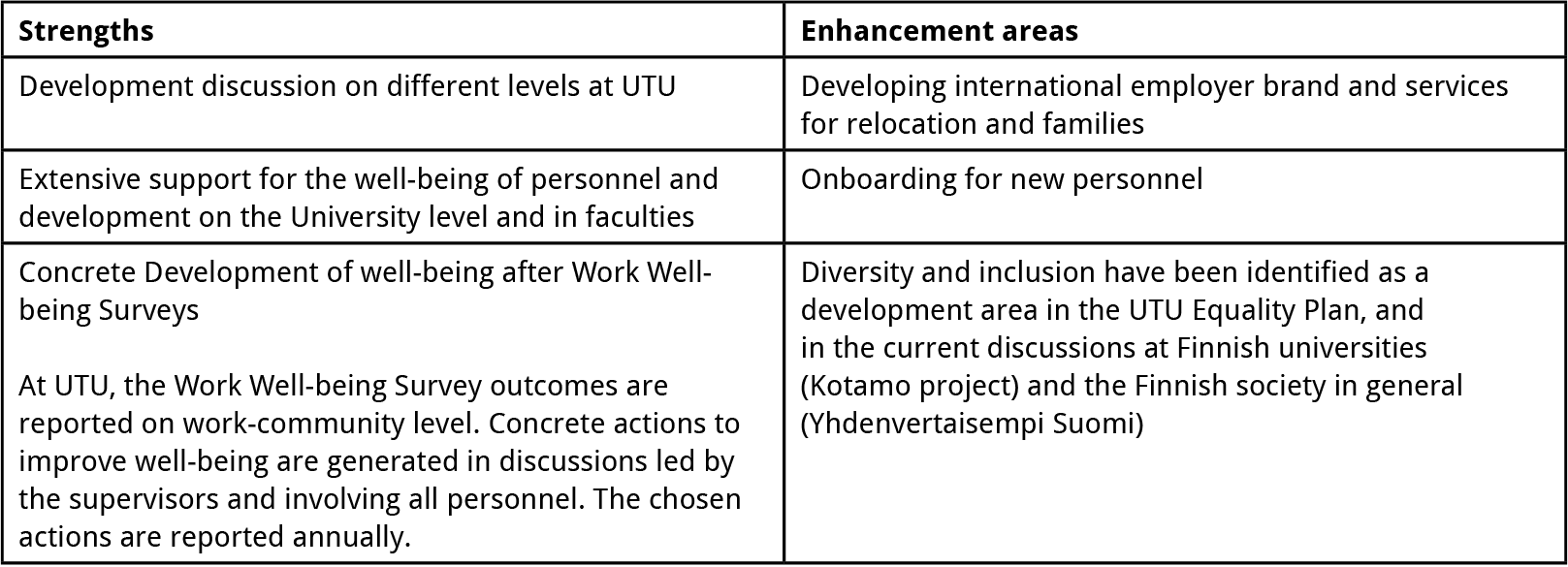Identifying development needs in staff competence
The steering group for personnel well-being and competence development defines the principles and focus areas arising from the Strategy. Focus areas define the centralised staff training contents offered to the entire personnel and the support for work communities. The principles of leadership guides the leadership and management development needs. The training selection is available in the work community development plan. UTU has many ways of collecting information about the competence development needs.
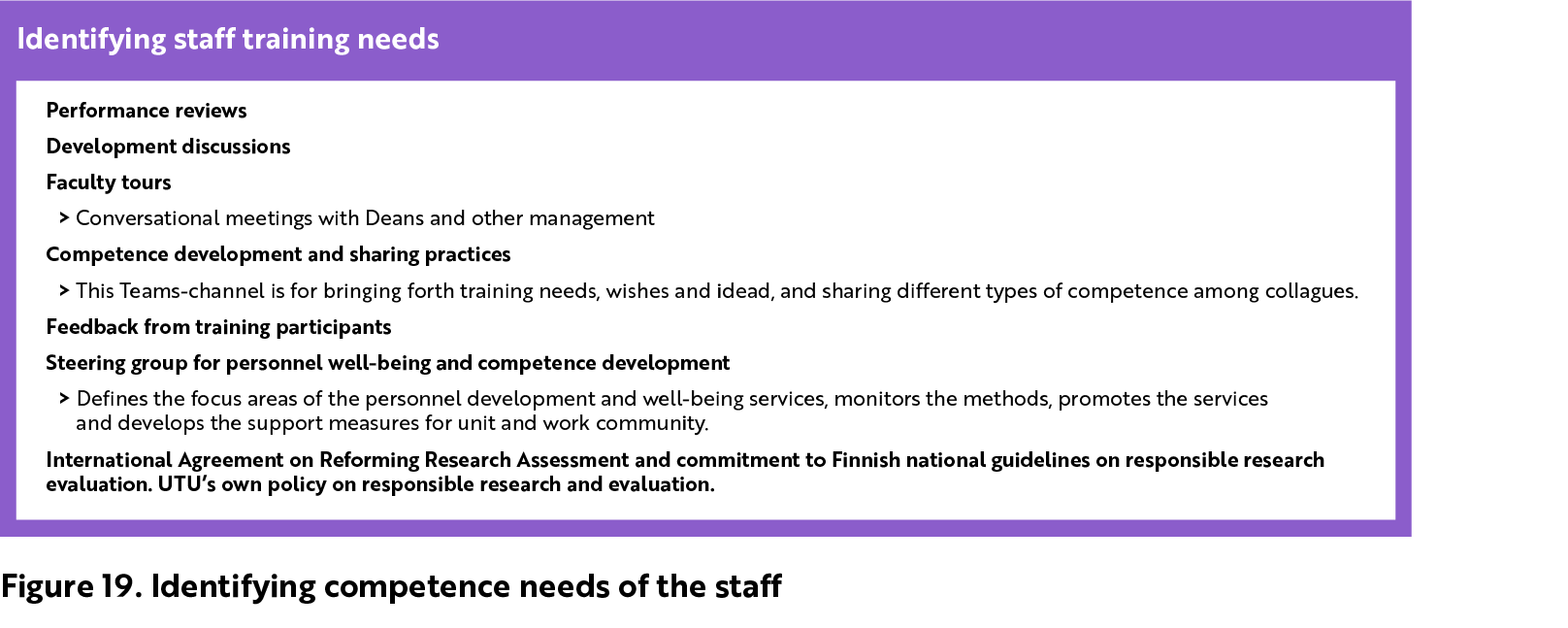
The Graduate School’s working group focusing on training develops training based on feedback from doctoral researchers. UTU’s responsible research and researcher evaluation is aiming to recognise competences which researchers have developed during their careers. The teaching staff’s opportunities for participating in pedagogical training are supported as part of the quality assurance of education. Student feedback ensures that the teaching methods are relevant.
Supporting the development of staff competence
The Personnel Policy describes how the Strategy and Policy Programme are implemented as HR activities.
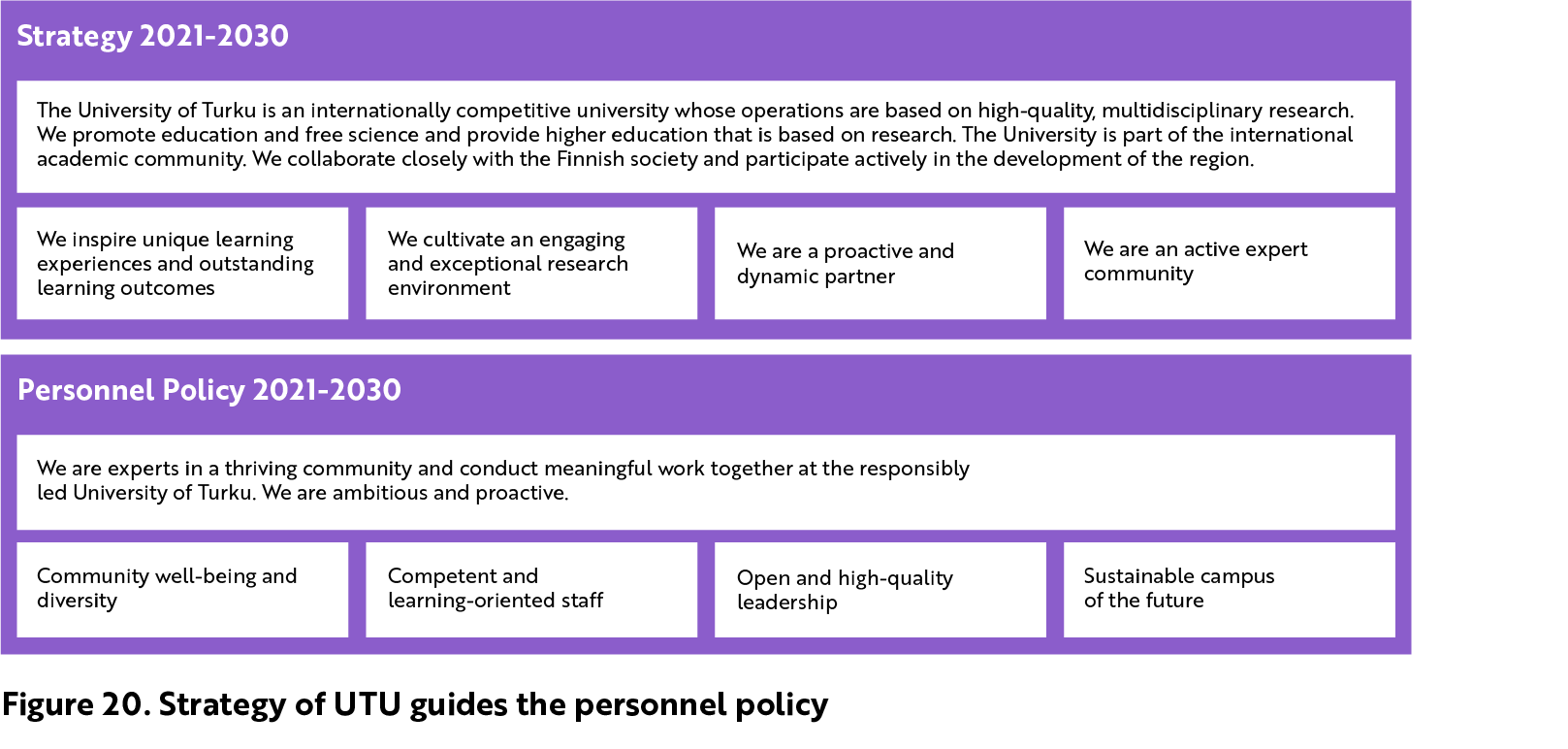
The work community development plan defines what kind of staff training will be organised. Several internal operators produce training services for the entire personnel and work communities. Training is organised also by external operators and as a collaboration between Finnish universities. Staff training are offered to all members of the UTU community. The training is free of charge and can be attended during working hours.
The open training courses are listed in Staff Training Calendar and in the Teams platform that is also used for sharing materials, competence and good practices (see chapter 3.3). The staff has licence to Eduhouse Online learning environment in digital skills and webinars in various themes. There are also other forms of support for competence and well-being development, such as mentoring, onboarding, on-demand training for work community, professional supervision, coaching, and peer groups. Those in a supervisory position are required to participate in leadership training.
UTUGS organises courses on transferable skills to researchers. The teaching staff can participate in pedagogical training. UNIPS is an online learning environment for teachers and other staff members.
Recruitment
The recruitment procedure is based on Universities Act, Act on the Openness of Government Activities and UTU’s own guidelines Procedure in Staff Recruitment, Appointment of Professors, Tenure Track System, and Fixed-term Employment Relationships. As a part of the EU’s HRS4R-certification, UTU is committed to implement the Charter and Code and the OTM-R Policy. These principles are integrated in UTU Strategy and Personnel Policy.
At UTU, recruitments are mainly carried out externally. Advertisement is done through both national and international channels. The assessment of applicants is based on pre-set requirements which are stated in the job advertisement. External expert procedure is used when recruiting professors or within the tenure track system and career path. Public selection memo is drawn on every recruitment. Throughout the recruitment process, the candidates are informed about the next steps and also about their own application status. The Personnel Pool supports career advancement and employees can express their interest to other positions in the Pool.
Well-being of personnel
The well-being of the personnel is continually monitored in co-operation with the occupational health care, and regularly assessed through Work Well-being Surveys and OHC’s Workplace Surveys. Data is collected annually with the Personnel Report.
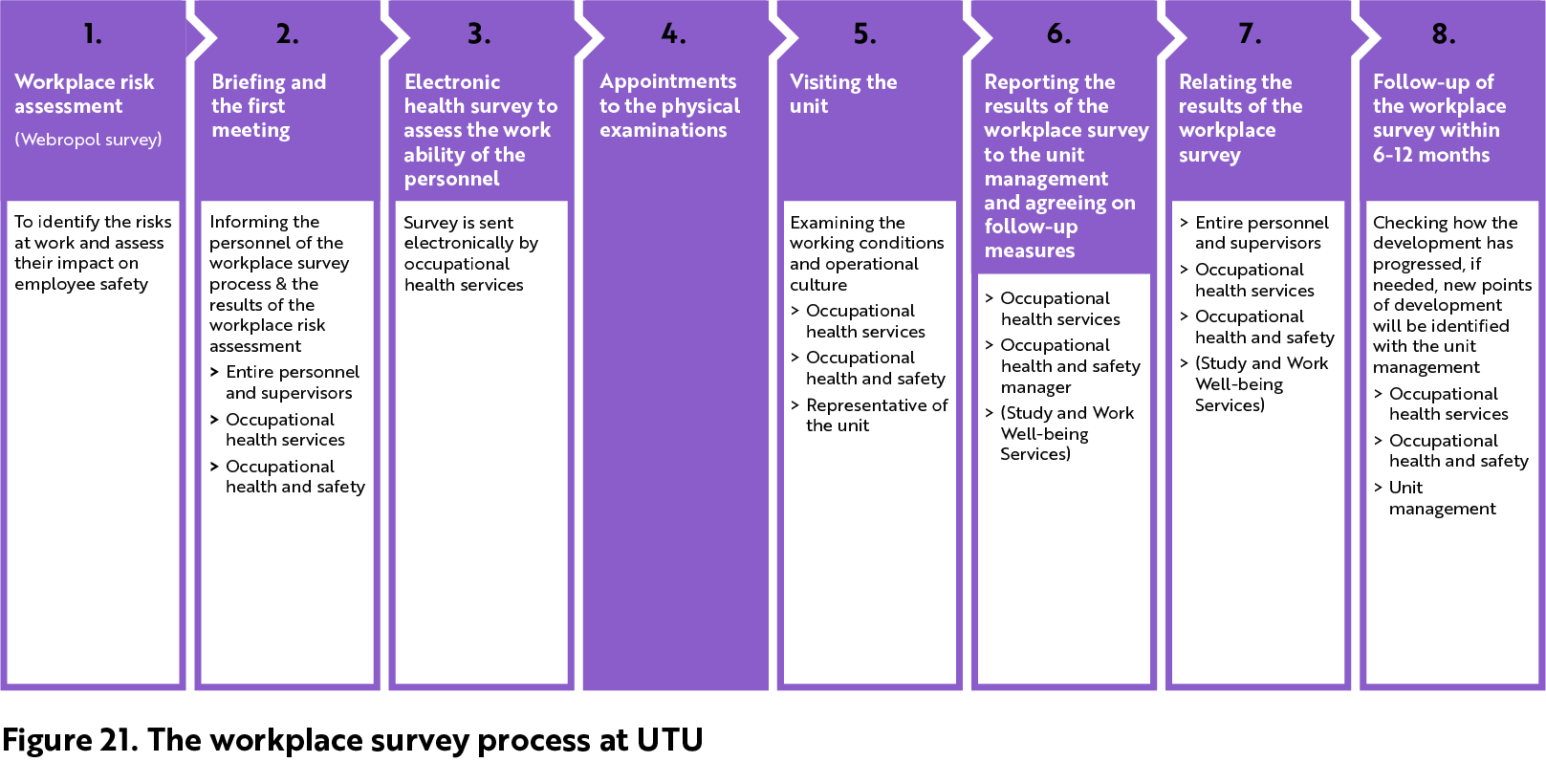
The outcomes of the Work Well-being Survey are reported on the work-community level to allow concrete development. The supervisors are supported with materials and tailored facilitation services. Well-being is a topic in each employee’s development discussion.
UTU ensures the well-being of individuals and the functionality of the University community with extensive and accessible services, such as the Study and Work Well-being Services including the Campus Sport, which are also available for researchers irrespective of their funding position.
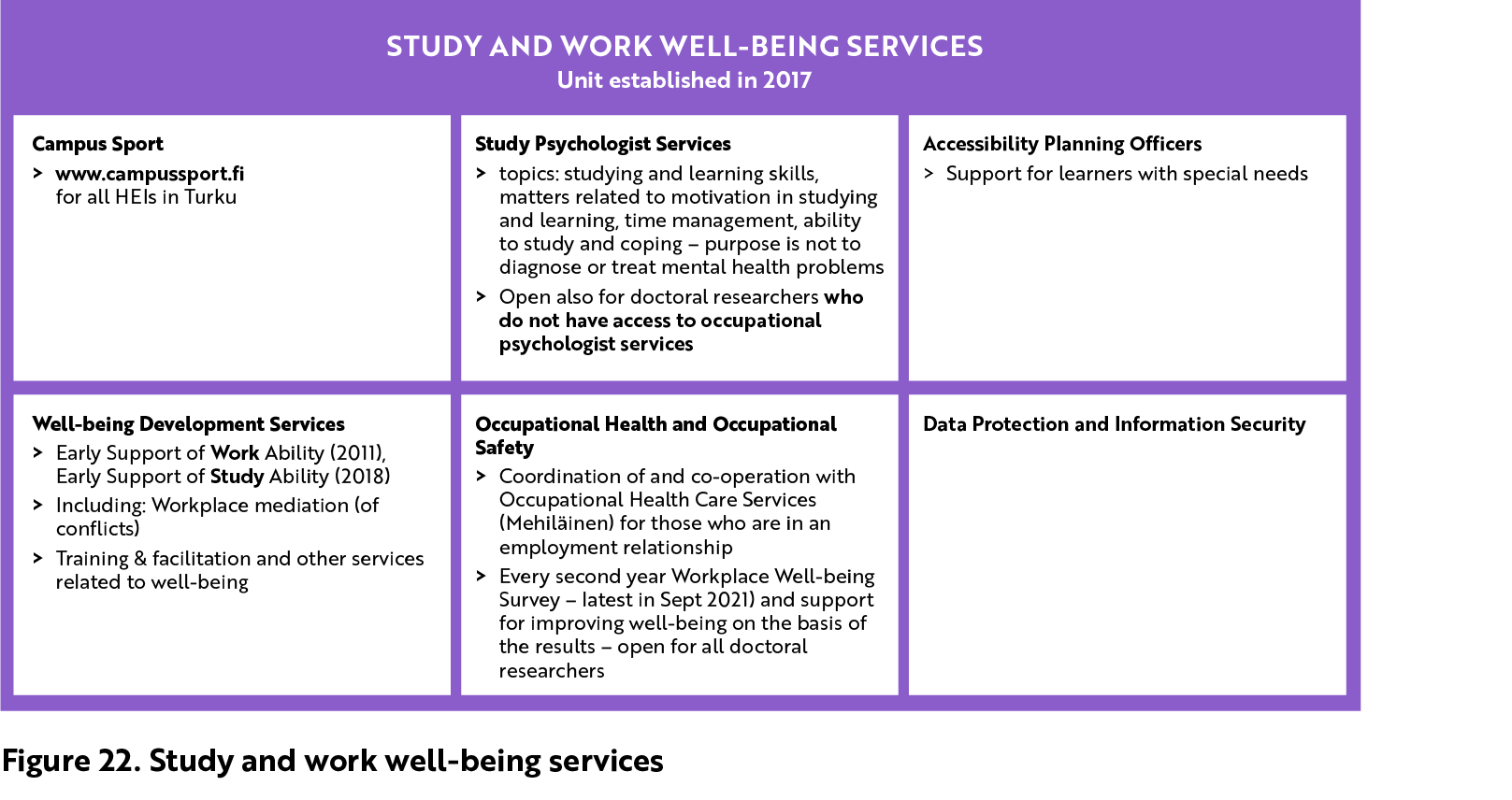
The early support guidelines and contacts help in situations where every day work is disturbed, by e.g. harassment, hate speech, or conflicts. The supervisor is responsible for solving problems, but all community members are encouraged to be active. For conflict resolution, UTU has an internal network of workplace mediators and a research-based workplace mediation process (see chapter 3.4).
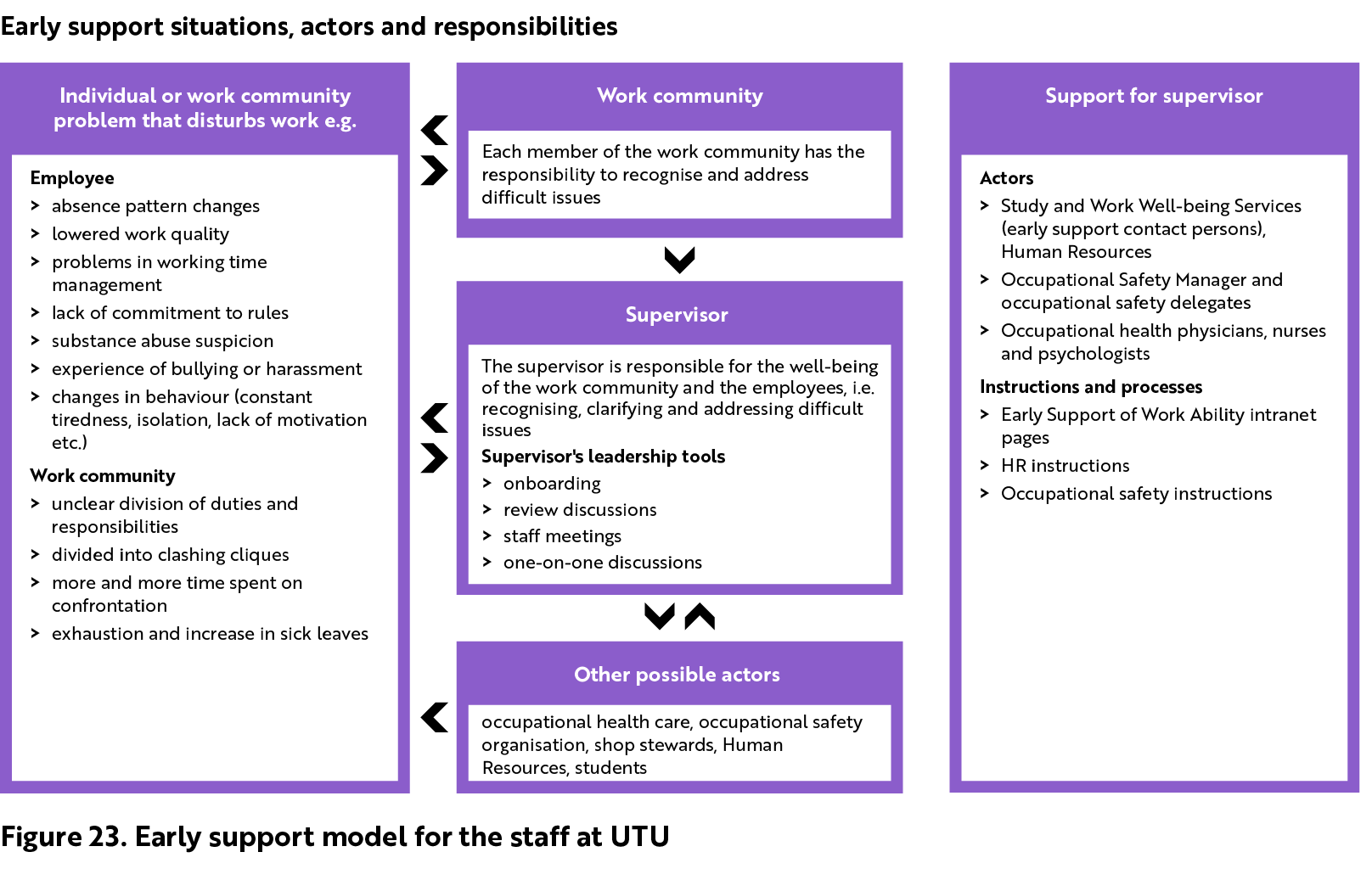
Everyone in the community has an important role in promoting equality and non-discrimination (related to e.g. age, sex, ethnicity). Promotion of accessibility and study and work well-being are at the heart of equality work.
UTU has an Equality Plan. The Equality Committee (EC) monitors the progress regularly and updates the measures as required. The advisor on equality issues offers instructions and guidance to both students and personnel, and collaborates with the EC and the Student Union.
UTU has a zero tolerance policy towards inappropriate behaviour and racism. There are several ways to report experiences of inappropriate behaviour.
Accessibility means the possibility for all types of actors to participate and act equally in the UTU community, regardless of their personal characteristics. The Accessibility Policy’s objective is to promote accessibility and develop practises and operations that support accessibility and which are also required by legislation. The implementation plan is updated annually.
The accessibility planning officers give advice, support and guidance on matters related to the accessibility of studying and teaching both for different kinds of learners and the staff. Their tasks also include individual arrangements for studies.
Open communication culture increases the organisation’s well-being. The University Communications highlights and shares current topics, decisions and strategic themes on the intranet. Staff and students receive their own internal newsletter and can comment on the intranet news. The intranet also provides key services and instructions as well as electronic tools for the UTU community.
